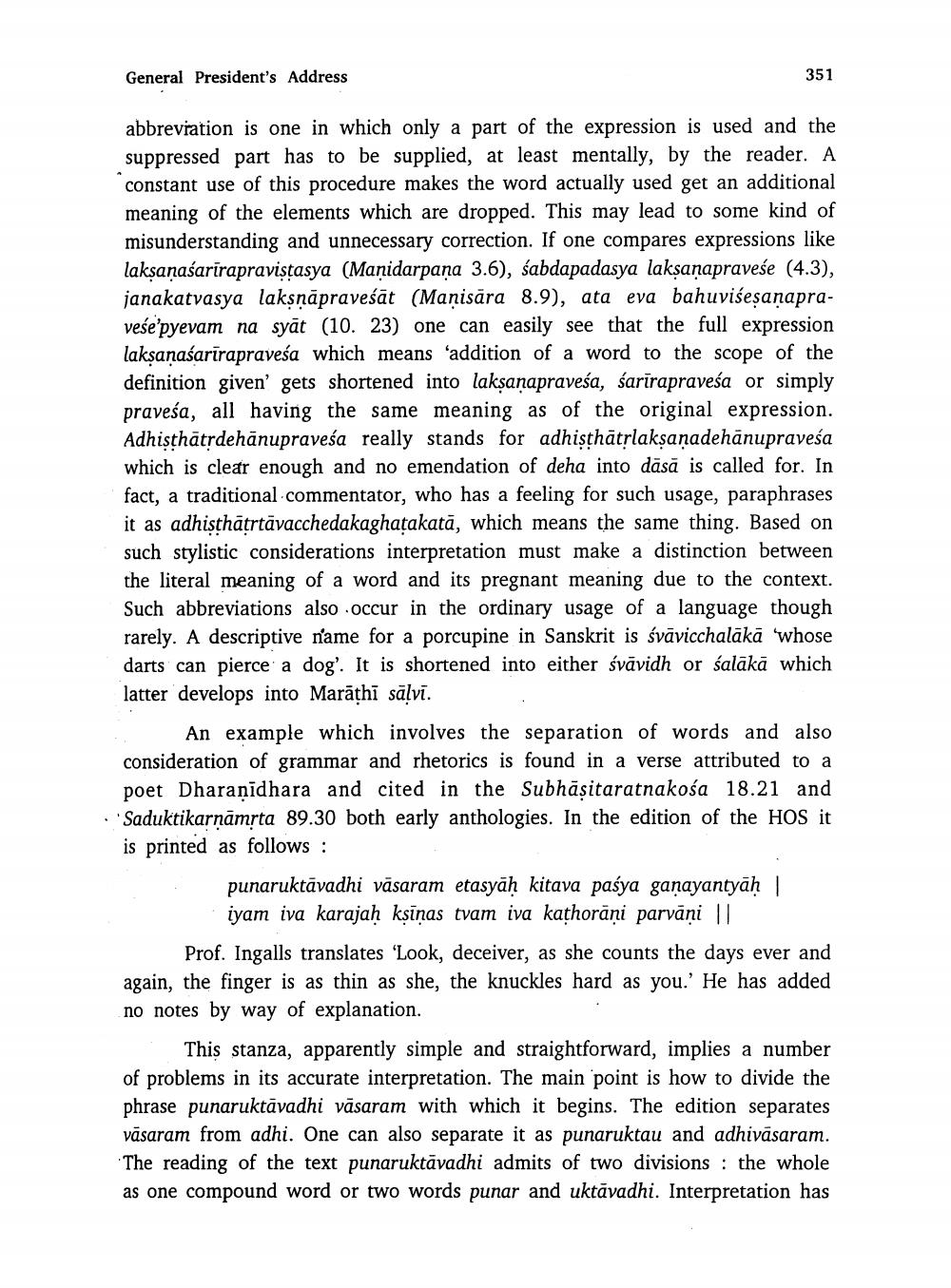________________
General President's Address
351
abbreviation is one in which only a part of the expression is used and the suppressed part has to be supplied, at least mentally, by the reader. A constant use of this procedure makes the word actually used get an additional meaning of the elements which are dropped. This may lead to some kind of misunderstanding and unnecessary correction. If one compares expressions like laksaņaśarīrapravistasya (Manidarpana 3.6), śabdapadasya lakṣaṇapraveśe (4.3), janakatvasya laksnāpraveśāt (Maņisāra 8.9), ata eva bahuviseșanapraveće’pyevam na syāt (10. 23) one can easily see that the full expression laksanaśarirapraveśa which means 'addition of a word to the scope of the definition given' gets shortened into laksanapraveśa, śarīrapraveśa or simply praveśa, all having the same meaning as of the original expression. Adhisthātrdehānupraveśa really stands for adhisthātrlakṣaṇadehānupraveśa which is clear enough and no emendation of deha into dāsā is called for. In fact, a traditional commentator, who has a feeling for such usage, paraphrases it as adhisthātrtāvacchedakaghatakatā, which means the same thing. Based on such stylistic considerations interpretation must make a distinction between the literal meaning of a word and its pregnant meaning due to the context. Such abbreviations also occur in the ordinary usage of a language though rarely. A descriptive name for a porcupine in Sanskrit is śvāvicchalākā 'whose darts can pierce a dog. It is shortened into either svāvidh or salākā which latter develops into Marāthī sālvī.
An example which involves the separation of words and also consideration of grammar and rhetorics is found in a verse attributed to a
poet Dharanidhara and cited in the Subhāsitaratnakośa 18.21 and · Saduktikarnāmrta 89.30 both early anthologies. In the edition of the HOS it
is printed as follows:
punaruktāvadhi vasaram etasyah kitava pasya ganayantyāh iyam iva karajah ksīnas tvam iva kathorāņi parvāni ||
Prof. Ingalls translates 'Look, deceiver, as she counts the days ever and again, the finger is as thin as she, the knuckles hard as you.' He has added no notes by way of explanation.
This stanza, apparently simple and straightforward, implies a number of problems in its accurate interpretation. The main point is how to divide the phrase punaruktāvadhi vāsaram with which it begins. The edition separates vāsaram from adhi. One can also separate it as punaruktau and adhivāsaram. The reading of the text punaruktāvadhi admits of two divisions : the whole as one compound word or two words punar and uktāvadhi. Interpretation has




